My Favorite Poem that I've read so far:
Goldilocks and the Three Bears
By Roald Dahl
from a Poetry Anthology, Once Upon a Poem
Published 2004 by The Chicken House
This famous wicked little tale
Should never have been put on sale.
It is a mystery to me
Why loving parents cannot see
That this is actually a book
About a brazen little crook.
Had I the chance I wouldn't fail
To clap young Goldilocks in jail.
Now just imagine how you'd feel
If you had cooked a lovely meal,
Delicious porridge, steaming hot,
Fresh coffee in the coffee-pot
With maybe toast and marmalade,
The table beautifully laid,
One place for you and one for dad,
Another for your little lad.
Then dad cries, "Golly-gosh! Gee-whizz!
"Oh cripes! How HOT this porridge is!
"Let's take a walk along the street
"Untile it's cool enough to eat."
He adds, " An early morning stroll
"Is good for people on the whole.
"It makes your appetite improve
"It also helps your bowels to move."
No proper wife would dare to question
Such a sensible suggestion,
Above all not at breakfast-time
When men are seldom at their prime.
No sooner are you down the road
Than Goldilocks, that little toad,
That nosey thieving little louse,
Coming sneaking in your empty house.
She looks around. She quickly notes
Three bowls brimful of porridge oats.
And while still standing on her feet,
She grabs a spoon and starts to eat.
I say again, how would you feel
If you had made this lovely meal
And some delinquent little tot
Broke in and gobbled up the lot?
But wait! That's not the worst of it!
Now comes the most distressing bit.
You are of course a houseproud wife,
And all your happy married life
You have collected lovely things,
Like gilded cherubs wearing wings,
And furniture by Chippendale
Bought at some famous auction sale.
But your most special valued treasure,
The piece that gives you endless pleasure,
Is one small children's dining-chair,
Elizabethan, very rare.
It is in fact your joy and pride,
Passed down to you on grandma's side.
But Goldilocks, like many freaks,
Does not appreciate antiques.
She doesn't care, she doesn't mind,
And now she plonks her fat behind
Upon this dainty precious chair,
And crunch! It busts beyond repair.
A nice girl would at once exclaim,
'Oh dear! Oh heavens! What a shame!'
Not Goldie. She begins to swear.
She bellows, 'What a lousy chair!'
And uses one disgusting word
That luckily you've never heard.
(I dare not write it, even hint it.
Nobody would ever print it.)
You'd think by now this little skunk
Would have the sense to do a bunk.
But no. I very much regret
She hasn't nearly finished yet.
Deciding she would like a rest,
She says, 'Let's see which bed is best.'
Upstairs she goes and tries all three.
(Here comes the next catastrophe.)
Most educated people choose
To rid themselves of socks and shoes
Before they clamber into bed.
But Goldie didn't give a shred.
Her filthy shoes were thick with grime,
And mud and mush and slush and slime.
Worse still, upon the heel of one
Was something that a dog had done.
I say once more, what would you think
If all this horrid dirt and stink
Was smeared upon your eiderdown
By this revolting little clown?
(The famous story has no clues
To show the girl removed her shoes.)
Oh, what a tale of crime on crime!
Let's check it for a second time
Crime One, the prosecution's case:
She breaks and enters someone's place
Crime Two, the prosecutor notes:
She steals a bowl of porridge oats
Crime Three: She breaks a precious chair
Belonging to the Baby Bear.
Crime Four: She smears each spotless sheet
With filthy messes from her feet.
A judge would say without a blink,
'Ten years hard labour in the clink!'
But in the book, as you will see,
The little beast gets off scot-free,
While tiny children near and far
Shout, 'Goody-good! Hooray! Hurrah!'
'Poor darling Goldilocks!' they say,
'Thank goodness that she got away!'
Myself, I think I'd rather send
Young Goldie to a sticky end.
'Oh daddy!' cried the Baby Bear,
'My porridge gone! It isn't fair!'
'Then go upstairs,' the Big Bear said,
'Your porridge is upon the bed.
'But as it's inside mademoiselle,
'You'll have to eat her up as well.'
I laughed through most of this poem. I never knew that Roald Dahl wrote poems! As I was reading the poem, I kept disliking Goldilocks more and more! Dahl is right! When you read the fairy tale, you are thinking about poor little Goldilocks, most people don't stop and think of how the bears must have felt to come home and find that someone had broken into their house and eaten their porridge and slept in their beds. I love the way that Dahl talks to the reader, reminding the reader to put his or herself in the place of the mother bear. Just how would you feel if someone had broken into your house and broken your most prized possession and ruined your family's breakfast and sheets?? After reading the story of Goldilocks as told this way, I think that Goldilocks deserves to be eaten up! Dahl really makes Goldilocks out to be a little brat. He adds so many extra details that really liven up the story: there is dog poo on Goldilocks' shoe, an Elizabethan chair, and more.
Dahl makes definite use of rhyme and rhythm in this poem. The rhyme and rhythm work together to provide a fast-paced reading, the same pace as someone who is telling you a story that makes them mad! I know when I'm upset about something and I just can't believe it's happened, I tend to talk a little faster than normal. His word choice is also outstanding. I can't believe the number of synonyms for brat that Dahl was able to come up with and use as if they were part of normal, every-day speech. This version of Goldilocks also gives us a little different view of the events. If we just read the traditional fairy tale, we don't see how things look from the bears' point of view. Luckily for us, Roald Dahl is able to change that for us! While I wouldn't exactly call it profound insight, this poem shows us a Goldilocks that is different from the one we're used to. It's important that we teach our children to think about how others will perceive our actions and to look at both sides of a story before making a judgment.
This poem would be great for a unit on traditional literature. Children love reading things that put things in a new perspective. Reading this poem would allow them to get a little bit of "blood and guts" into a relatively sugar-coated unit (unless of course you include the Grimm Brothers). As I mentioned before, this poem is also great for teaching about perspective. I would have students re-write some of their favorite fairy tales from a different character's point of view; for example, how does the wolf feel about things in Little Red Riding Hood? Obviously this poem, along with many others, is great for teaching about rhyme and rhythm.
Subscribe to:
Post Comments (Atom)
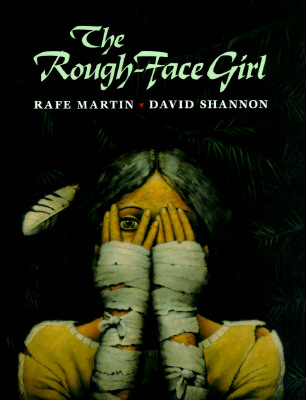
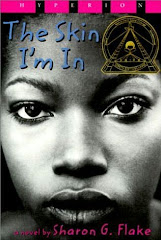
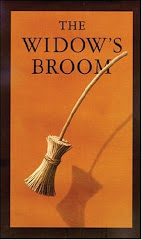

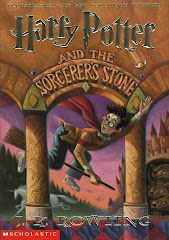
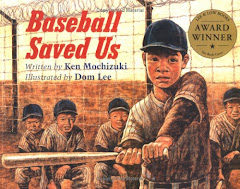
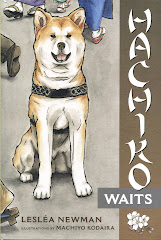



1 comment:
I love it! These revolting rhymes are quite macabre, and personally, that is why I enjoy reading them; as you state, they most definitely provide a "different" perspective! What about Cinderella...
Post a Comment